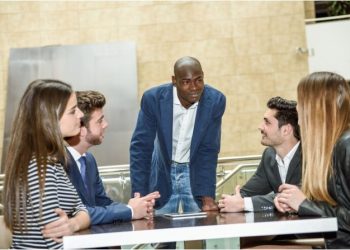Embarking on a mission trip to Nigeria offers an opportunity for participants to contribute to meaningful community development and experience the diverse culture of one of Africa’s most populous nations. These trips often involve providing healthcare, education, and other forms of aid to local communities. Participants prepare in advance for the journey, both logistically and culturally, to maximize the positive impact of their efforts.
For many, a mission trip to Nigeria is not just a chance to serve but also a learning experience that enhances personal growth and global awareness. Such trips are collaborative efforts, often organized by mission groups and NGOs, and they play a significant role in fostering relationships between volunteers and the communities they serve. By working closely with the locals, volunteers are able to understand the challenges faced and contribute to sustainable solutions.
Key Takeaways
- Mission trips to Nigeria provide vital services to local communities and a chance for cultural exchange.
- Adequate preparation is essential for the success and safety of the trip and its participants.
- Participating in a mission trip can have a significant developmental impact on both the community and the volunteers.
Preparing for the Mission Trip
Embarking on a mission trip to Nigeria requires thorough preparation. Strategic planning and attention to detail will ensure a successful and impactful stay for all volunteers.
Logistics and Itinerary
A well-structured itinerary is crucial for the coordination of activities in Nigeria. Volunteers should consider the most cost-effective airlines and the best day to book flights to manage their travel expenses. It’s important to schedule transportation, accommodations, and project visits in advance to maximize the use of time in West Africa.
Health and Safety
Volunteers must prioritize their health by getting all required vaccinations and medications for Nigeria. Malaria prophylaxis, vaccinations for yellow fever, and a complete first aid kit are essential. Staying hydrated and aware of food safety is also crucial to avoid illness.
Cultural Awareness and Sensitivities
Understanding Nigerian customs and societal norms is key to respecting and integrating with the local communities. Volunteers should learn about local dress codes, gestures, and etiquette to ensure their presence is culturally sensitive and appreciated.
Training and Orientation Sessions
Before departure, volunteers should participate in comprehensive training sessions. These sessions cover various aspects, including healthcare, education systems, and local languages, to equip volunteers with the necessary skills for their upcoming trip.
Packing Essentials
A detailed packing list is vital to ensure that volunteers bring appropriate attire and necessary supplies for the mission trip. This includes culturally appropriate clothing, durable footwear, and all personal hygiene items.
Legal and Documentation Requirements
Legal preparations such as obtaining a visa, ensuring passport validity, and understanding the local laws of Nigeria are non-negotiable steps. Detailed documentation, including emergency contacts and insurance information, should be organized and carried at all times.
By focusing on these areas in preparation, volunteers can look forward to a meaningful and productive mission trip to Nigeria.
Community Impact and Development
Mission trips to Nigeria have catalyzed pivotal changes, particularly in areas such as healthcare, education, and economic development, leaving a lasting impact on communities.
Health Services Outreach
Numerous mission trips to Nigeria focus on healthcare, providing medical services and glasses to those in need. These initiatives ensure that families have access to health services, reducing the burden of preventable diseases.
Educational Programs
Volunteers contribute to educational programs that aim to reduce poverty by equipping young Nigerians with essential knowledge and skills. This fosters an educated community that can pursue sustainable development and break the cycle of poverty.
Economic Empowerment Initiatives
Through economic empowerment initiatives, missions strive to create opportunities for individuals and communities, offering training and resources to help families become self-sufficient and improve their living standards.
Faith-Based Activities
Faith-based activities have a profound effect on communities, often bringing together people to foster a sense of hope and purpose. Such activities are centered on sharing the Gospel and embodying the teachings of Jesus, which can be a powerful motivator for communal harmony and cooperation.
Sustainability and Long-Term Goals
Sustainability is central to the mission’s ethos, with a focus on initiatives that promise long-term benefits such as clean and safe water projects. Building local capacity ensures that progress continues well beyond the mission trip’s duration.
Partnerships and Local Involvements
By fostering partnerships and local involvements, missions ensure that the community is actively engaged in all development efforts. This collaborative approach amplifies the overall impact of the mission and roots the benefits deeply within the community structure.
Personal Stories and Testimonies
The personal stories and testimonies of individuals who have benefited from mission trips to Nigeria illustrate the profound impact on their lives. These narrative arcs serve as powerful testaments to the positive changes brought about by such humanitarian missions.
Environmental Conservation Efforts
Lastly, environmental conservation efforts play a crucial role in maintaining the balance of local ecosystems. By imparting education about environmental stewardship, missions contribute to the creation of a community that values and protects its natural resources.
Through each of these subsections, the mission trips to Nigeria demonstrate a multi-faceted approach to development in West Africa, significantly improving the quality of life and the growth potential of communities they serve.
Joining a Mission Trip
Participating in a mission trip to Nigeria offers an opportunity for volunteers to directly impact communities and combat poverty. This section outlines key considerations in the mission trip process, from application to post-trip activities.
Eligibility and Application Process
To begin the journey of joining a mission trip, a potential volunteer must first meet the specific eligibility requirements, which often include age restrictions, certain skill sets, and a clear criminal background. The application process typically involves completing a form, providing references, and sometimes an interview. Documentation such as visas and vaccinations may also be required.
- Eligibility Criteria:
- Age minimums (varies by program)
- Relevant skills or willingness to train
- Background checks
- Application Steps:
- Submission of form with personal information
- Provision of professional or character references
- Interview process for assessment
Fundraising and Support
Raising funds is often vital for covering the costs of joining a mission trip. Fundraising can include personal networking, crowdfunding, church or community group support, and applying for grants or scholarships. Volunteers can seek guidance through established fundraising strategies and best practices.
- Fundraising Methods:
- Personal networking: engaging with friends, family, and community
- Online platforms: creating a crowdfunding campaign
- Support from local organizations
Roles and Responsibilities
Each volunteer on a mission trip will have a set of roles and responsibilities that contribute to the mission’s goals. These can range from direct medical aid to educational programs or logistical support. It’s essential that volunteers understand their duties to ensure a significant impact is made on the local communities.
- Typical Roles:
- Medical and healthcare provision
- Teaching or training local residents
- Infrastructure development
- Volunteer Responsibilities:
- Adhering to the mission’s schedule and guidelines
- Engaging respectfully with local communities
- Collaborating effectively with the mission team
Post-Trip Engagement
The journey doesn’t end once the mission trip is over. Post-trip engagement involves reflecting on the experience, sharing insights with others, and possibly continuing to support the community from afar. Some organizations encourage creating a narrative of the trip, which can be shared to inspire future volunteers and maintain connection with the community.
- Post-Trip Activities:
- Sharing stories and experiences with others
- Continued communication or support for the community
- Reflection and learning from the mission’s outcomes









